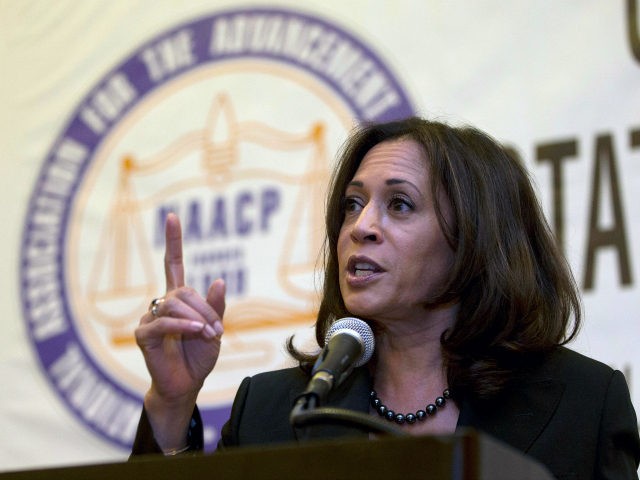The U.S. Supreme Court heard oral arguments Monday about a challenge to California’s requirement that non-profit groups disclose their donors to the state attorney general — a requirement that has been used to target conservative political groups.
The challenge, consolidated as Americans for Prosperity Foundation v. Rodriquez and Thomas More Law Center v. Rodriquez, began several years ago, when then-California Attorney General Kamala Harris tried to force Americans for Prosperity, a group backed by the Koch brothers, to disclose their donors. A federal district court ruled against the state, but the Ninth Circuit found that the donor requirement did not violate the First Amendment right to freedom of association.
Should the Supreme Court affirm the Ninth Circuit decision, non-profit groups would be required to disclose the same information about their donors that they give to the federal Internal Revenue Service on a form called Schedule B. The information in Schedule B is supposed to remain confidential, but conservative groups are concerned about leaks by politically-motivated officials. More recently, some left-wing groups have added their voices to the challenge, including the National Association for the Advancement of Colored People (NAACP).
During the civil rights era, the NAACP won a landmark decision at the U.S. Supreme Court in NAACP v. Alabama (1958), which found that Alabama’s efforts to force the NAACP to disclose its membership violated the freedom of association.
The conservative groups argue that California could simply audit any group suspected of breaking the law, rather than requiring disclosure of all groups, which poses a potential risk to donors and thus to the freedom of association.
Sen. Sheldon Whitehouse (D-RI), who presented a “dark money” conspiracy theory to the Senate Judiciary Committee during confirmation hearings last year for Justice Amy Coney Barrett, has asked Barrett to recuse herself from the decision, because Americans for Prosperity spent over a million dollars to advocate for her confirmation to the Supreme Court. However, Barrett did not recuse herself, and participated in the oral arguments on Monday, along with the other justices.
Justice Clarence Thomas asked Acting U.S. Solicitor General Elizabeth Prelogar whether there was a greater risk to donors to organizations that had been accused of supporting racism or “white supremacy” (a standard that would include almost every group on the right). She agreed that there was.
Even liberal justices seemed skeptical of California’s rule. Justice Sonia Sotomayor pressed California Deputy Solicitor General Aimee Feinberg about concerns about hacking, given that California had a bad reputation for poor protection of private information by state government. She asked whether the rule requiring non-profit groups to provide confidential donor information to the state was effectively a public disclosure requirement.
The federal government has filed an amicus curiae (“friend of the court” brief) supporting the challenge in part, and opposing it in part, arguing that California’s rule is constitutional, but urging the Supreme Court to send the case back to the lower courts to consider the effects of donor disclosure requirement in the particular case of the conservative groups that sued.
The cases are Americans for Prosperity v. Rodriguez and Thomas More Law Center v. Rodriguez, Nos. 19-251 and 19-255 in the Supreme Court of the United States.
Joel B. Pollak is Senior Editor-at-Large at Breitbart News and the host of Breitbart News Sunday on Sirius XM Patriot on Sunday evenings from 7 p.m. to 10 p.m. ET (4 p.m. to 7 p.m. PT). He is the author of the recent e-book, Neither Free nor Fair: The 2020 U.S. Presidential Election. His recent book, RED NOVEMBER, tells the story of the 2020 Democratic presidential primary from a conservative perspective. He is a winner of the 2018 Robert Novak Journalism Alumni Fellowship. Follow him on Twitter at @joelpollak.

COMMENTS
Please let us know if you're having issues with commenting.